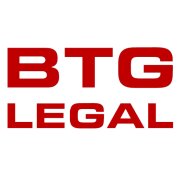Best Data Center & Digital Infrastructure Lawyers in Italy
Share your needs with us, get contacted by law firms.
Free. Takes 2 min.
Or refine your search by selecting a city:
List of the best lawyers in Italy
About Data Center & Digital Infrastructure Law in Italy
Data centers and digital infrastructure are fundamental to the modern digital economy, enabling the storage, processing, and management of vast quantities of data. In Italy, the sector has witnessed rapid growth, driven by increasing demand for cloud computing, data protection, and digital transformation among businesses and public institutions. Italian data center and digital infrastructure law addresses the legal frameworks governing the construction, operation, management, and security of these facilities. It also incorporates aspects of information security, privacy, environmental regulations, and compliance with European Union standards, particularly the General Data Protection Regulation (GDPR).
Why You May Need a Lawyer
Legal assistance may become crucial in a range of situations related to data center and digital infrastructure in Italy. Common scenarios include:
- Navigating complex regulatory requirements for building or expanding data centers
- Drafting and negotiating contracts with suppliers, clients, or cloud service providers
- Ensuring compliance with data privacy laws, including the GDPR and Italian Data Protection Code
- Managing cybersecurity obligations and incident response
- Resolving disputes related to service level agreements or contractual breaches
- Addressing environmental compliance and zoning issues for data center locations
- Handling cross-border data transfers and related legal implications
- Protecting intellectual property connected to digital infrastructure technologies
A specialized lawyer can help mitigate risks, ensure compliance, and protect your interests whether you are establishing, operating, or investing in digital infrastructure.
Local Laws Overview
Key aspects of Italian law that are particularly relevant to data center and digital infrastructure include:
- Data Protection and Privacy: The GDPR is directly applicable in Italy, alongside the national Data Protection Code. These laws impose strict requirements on collection, processing, storage, and transfer of personal data.
- Cybersecurity: Legislative Decree 65/2018 implements the EU Network and Information Security (NIS) Directive, establishing obligations for digital service providers, including data centers.
- Environmental and Zoning Regulations: Data centers must comply with national and local rules on energy efficiency, waste management, and land use. Authorities closely monitor power consumption and environmental impact.
- Cloud Services Regulation: Public sector data storage is subject to specific requirements established by the Agency for Digital Italy (AgID) regarding certified suppliers and cloud infrastructure security.
- Contract Law: Italian Civil Code provisions apply to contracts between private parties for construction, leasing, or service delivery related to digital infrastructure.
- Cross-border Data Transfers: Data exported outside the EU must comply with GDPR provisions regarding adequate safeguards.
Frequently Asked Questions
What permits are needed to build a data center in Italy?
Building a data center typically requires municipal planning permits, environmental authorizations, and adherence to national zoning regulations. Additional permits for energy usage and safety may also apply.
How does GDPR affect data center operations in Italy?
Data centers must ensure adequate data protection measures are in place, allowing clients to meet GDPR requirements concerning personal data security, access rights, data transfers, and incident notifications.
Are there special security obligations for data centers?
Yes, under Italian law and the NIS Directive, data centers classified as essential digital service providers must adopt robust cybersecurity measures and report significant incidents to authorities.
Can I store data from outside Italy in an Italian data center?
Yes, but data storage must comply with GDPR and any legal requirements that apply to the data's country of origin, especially for sensitive or regulated industries.
What contracts are needed for leasing space in a data center?
Typical agreements include a lease or colocation agreement outlining technical specifications, service levels, and responsibilities for both parties. Legal review ensures compliance and risk mitigation.
What are the risks if my data center does not comply with local laws?
Non-compliance can result in administrative sanctions, fines, forced closures, loss of certifications, or reputational damage. Severe violations of data protection laws can result in substantial monetary penalties.
How can data be transferred lawfully outside the EU?
Data transfers outside the EU require safeguards such as Standard Contractual Clauses, Binding Corporate Rules, or transfer to countries recognized as having adequate protection under the GDPR.
Who regulates data centers in Italy?
Data centers are regulated by multiple authorities, including the Garante per la Protezione dei Dati Personali (Data Protection Authority), AgID for public sector digital infrastructure, and local environmental agencies.
Are there energy efficiency requirements for data centers?
Yes, Italian and EU regulations promote energy efficiency in data centers, requiring adoption of best practices, regular energy audits, and compliance with environmental standards.
What steps should I take if my data center suffers a data breach?
It is essential to notify the Garante (Data Protection Authority) within 72 hours, inform affected parties if required, and conduct a thorough investigation to address vulnerabilities and prevent recurrence.
Additional Resources
The following organizations and governmental bodies can provide valuable information and support:
- Garante per la Protezione dei Dati Personali: Italy's Data Protection Authority offers guidelines and responses on GDPR and data privacy matters.
- AgID (Agenzia per l'Italia Digitale): Oversees standards for digital infrastructure, especially relevant for public sector data management.
- Ministero dello Sviluppo Economico: Provides information about digital transformation policies and incentives.
- Confindustria Digitale: Industry association representing digital and IT businesses in Italy.
- ENEA (Italian National Agency for New Technologies, Energy, and Sustainable Economic Development): Guidance on energy efficiency for data centers.
- Local Chambers of Commerce: Information on permits, zoning, and local incentives for digital infrastructure projects.
Next Steps
If you require legal assistance with data center or digital infrastructure matters in Italy, consider the following steps:
- Identify your primary legal needs, such as compliance, contracts, or operational issues.
- Consult a lawyer experienced in IT, privacy, or digital infrastructure law for tailored advice.
- Gather relevant documentation, including contracts, permits, and communications with authorities.
- Seek initial legal consultations to outline your situation and discuss the most effective strategy.
- Remain updated on regulatory changes or announcements by relevant Italian or EU authorities.
Taking proactive legal advice can help you avoid costly mistakes and ensure your data center or digital infrastructure investment remains secure, compliant, and successful within the Italian legal framework.
Lawzana helps you find the best lawyers and law firms in Italy through a curated and pre-screened list of qualified legal professionals. Our platform offers rankings and detailed profiles of attorneys and law firms, allowing you to compare based on practice areas, including Data Center & Digital Infrastructure, experience, and client feedback.
Each profile includes a description of the firm's areas of practice, client reviews, team members and partners, year of establishment, spoken languages, office locations, contact information, social media presence, and any published articles or resources. Most firms on our platform speak English and are experienced in both local and international legal matters.
Get a quote from top-rated law firms in Italy — quickly, securely, and without unnecessary hassle.
Disclaimer:
The information provided on this page is for general informational purposes only and does not constitute legal advice. While we strive to ensure the accuracy and relevance of the content, legal information may change over time, and interpretations of the law can vary. You should always consult with a qualified legal professional for advice specific to your situation.
We disclaim all liability for actions taken or not taken based on the content of this page. If you believe any information is incorrect or outdated, please contact us, and we will review and update it where appropriate.
Browse data center & digital infrastructure law firms by city in Italy
Refine your search by selecting a city.
















